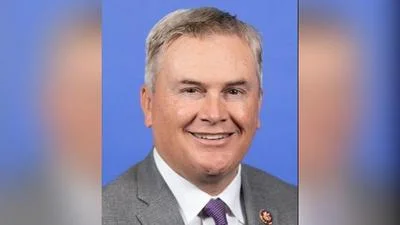Good Afternoon. Let me begin by congratulating the Ranking Member, Mr. Kelly, on his appointment. I hope that we will continue the good and thoughtful work on the behalf of American taxpayers. I would also like to welcome the new and returning Members to the Oversight Subcommittee. I look forward to working with each and every one of you in the 116th Congress.
During today’s hearing, we will examine a topic of great interest to the American public. We will review whether a president, vice-president, or any candidate for these offices should be required by law to make their tax returns available to the public. In other words, we ask the question- “Does the public have a need to know that a person seeking or holding the highest office in our country obeys the tax laws?"
To help inform our thinking, we will review: the voluntary release of tax returns by presidents and others; the federal tax laws that protect taxpayer information; recent bills -- including H.R. 1 - that would require presidents and vice-presidents to disclose their tax return; and Internal Revenue Service audits of tax returns filed by presidents and vice-presidents.
This morning, I am reminded that, over 45 years ago, we were in a situation that is not much different than today when President Nixon faced questions about his federal income taxes. During a press conference calling for a review by Congress of his returns he said, and I quote,
“In all my years of public life, I have never profited -- never profited -- from public service... and... in my years of public life I welcome this kind of examination because people have got to know whether or not their president is a crook. Well, I am not a crook."
Well, even though the Internal Revenue Service wrote him a letter stating his returns were correct, the investigation by Congress found that he owed almost four-hundred and eighty thousand dollars in tax and interest.
The questions that arose then and remain today are -- first, should the public know whether the person, who is running for the office or who is currently leading our nation, paid the correct amount of tax? In the case of Nixon, the answer was “yes."
Second, is it fair, based on internal policies alone, to expect the Internal Revenue Service to enforce the federal tax law against the president, the head of the Executive Branch who has ultimate control of the agency? In the case of Nixon, the answer was “no."
These and other grave questions on the state of our democracy require thoughtful and serious consideration.
I believe that we have a mission, an obligation, and a mandate to improve the integrity, access, and accountability of our country’s voting and electoral processes. This is the reason that House Democrats introduced H.R. 1, the For the People Act, which includes the Voter Empowerment Act, legislation that I championed for many years with Majority Leader Steny Hoyer, Majority Whip James Clyburn, Judiciary Committee Chairman Jerrold Nadler, and House Administration Chairwoman Zoe Lofgren. It is a good and necessary bill inspired by a critical national conversation.
Our congressional and constitutional duty to protect the foundation of our nation must always rise above partisanship and politics. Securing, improving, and preserving our democracy requires serious consideration, attention, and oversight. It is not a Democratic or a Republican query; it is an American responsibility.
Again, I thank our experts for joining us today, and I look forward to their testimony.









